On #WorldMicrobiomeDay, Domino with EUFIC (European Food Information Council) has a mission to disseminate food microbiome science publicly.
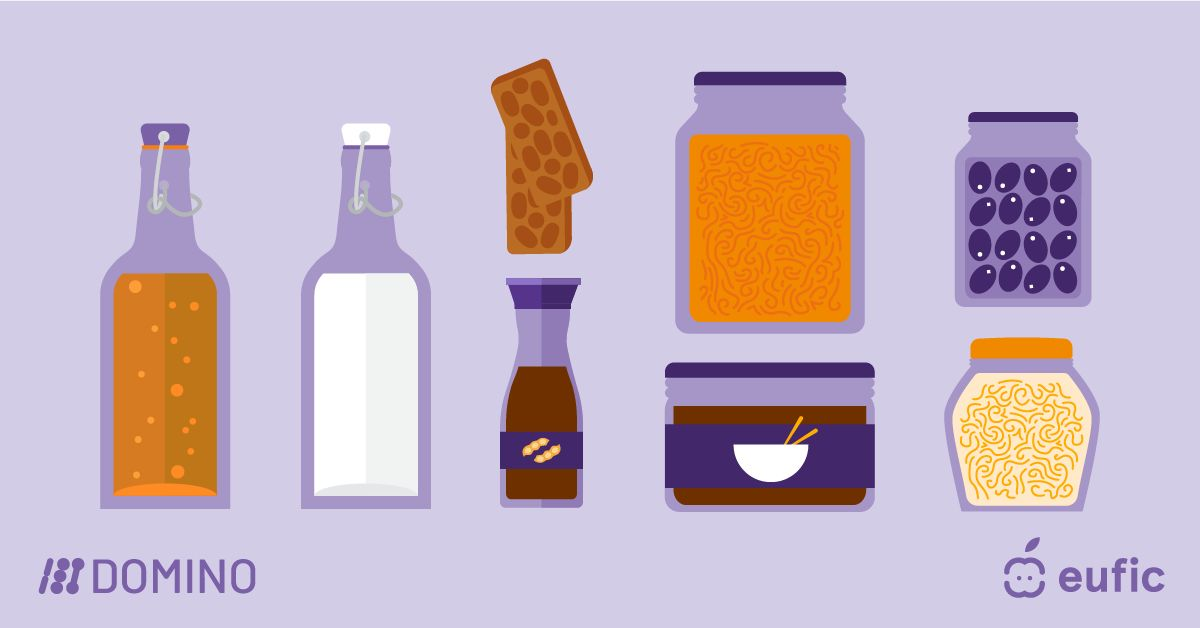
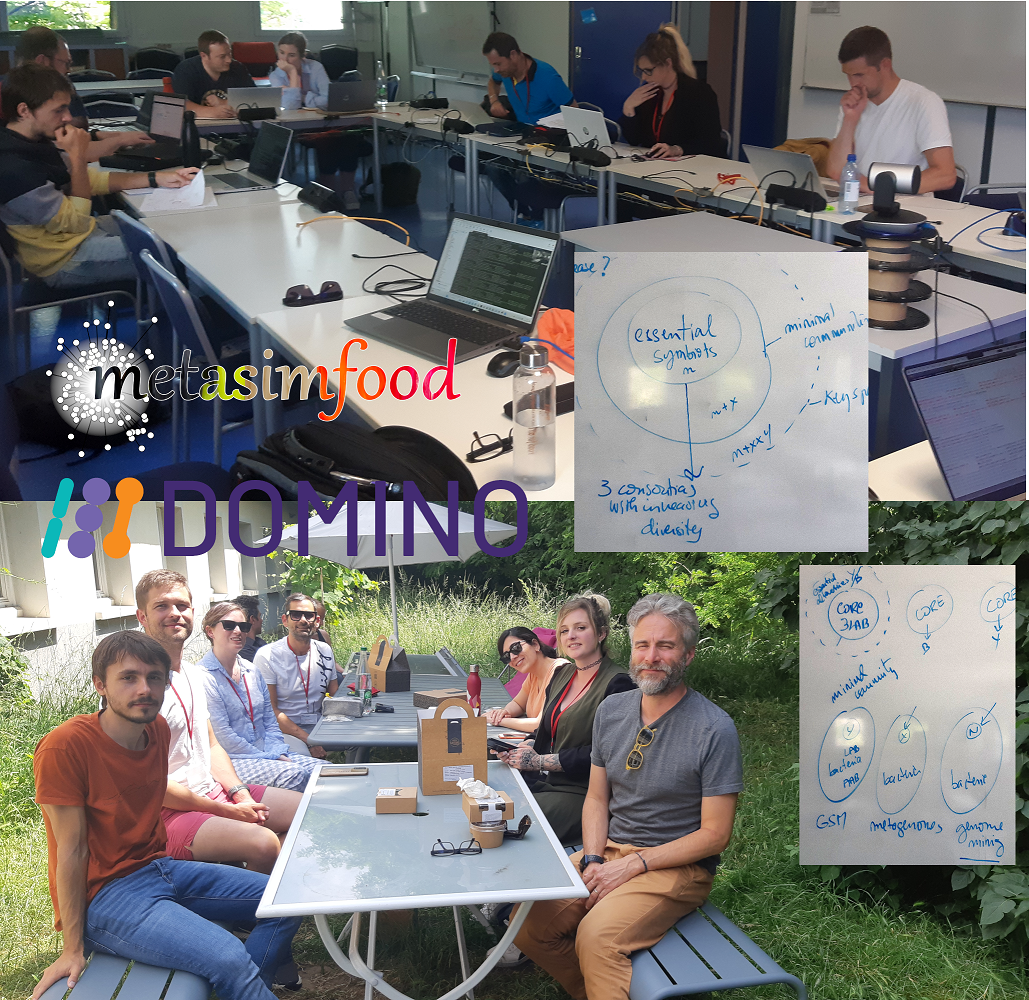
The last three days, from Monday 24th to Wednesday 26th of June, INRAE (MaiAge & MICALIS) teams organised a workshop on microbial community-level genome scale modelling (GSM) for consortia design.
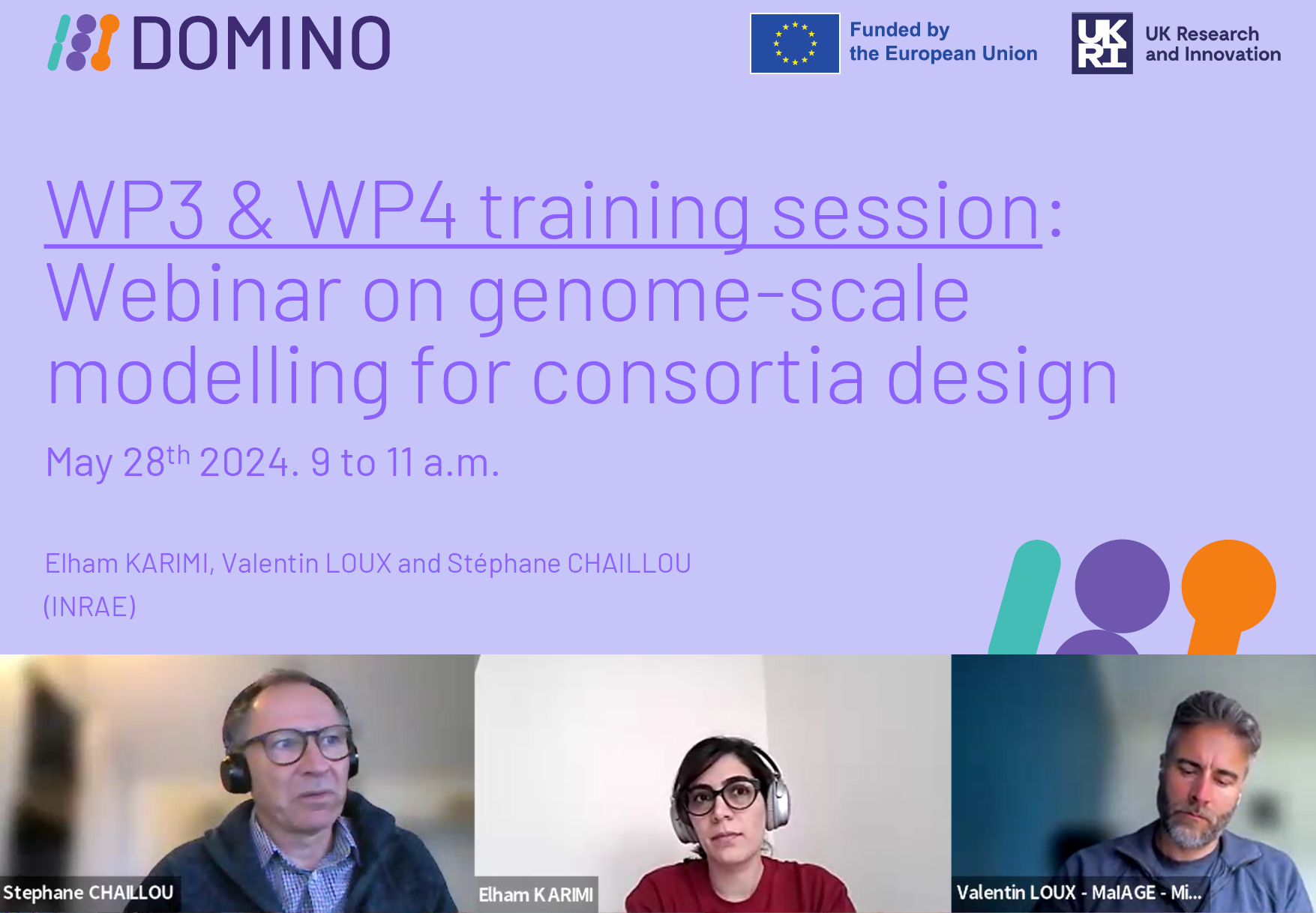
Last Tuesday 28th of May, Elham Karimi, Stephane Chaillou (Micalis, Food Microbial Ecology research group) and Valentin Loux (MaIAge) have organised in the frame of the #DominoEU project a webinar training session on genome-scale modelling (GSM).

Happy to share our last article published online last week 15th of May in Microbiology Spectrum1.
-
Junker R, Valence F, Mistou M, Chaillou S, Chiapello H.0. Integration of metataxonomic data sets into microbial association networks highlights shared bacterial community dynamics in fermented vegetables. Microbiol Spectr0:e00312-24. ↩
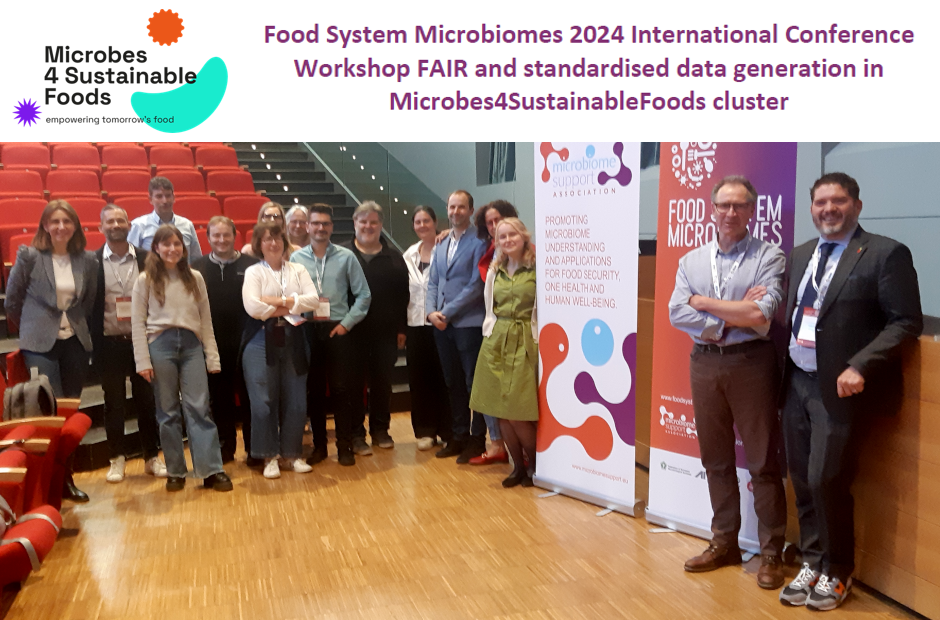
Last Friday 17th of May, in the frame of the 1st Food System Conference in Torino , Stéphane Chaillou organized the second clustering activity of the #Microbes4SustainableFoods cluster of EU projects (#DominoEU, #HealthFerm, #Pimento ca20128, #Wheatbiome, #Tribiome and #Microbes) on the Friday afternoon after the conference closure.
Latest Posts
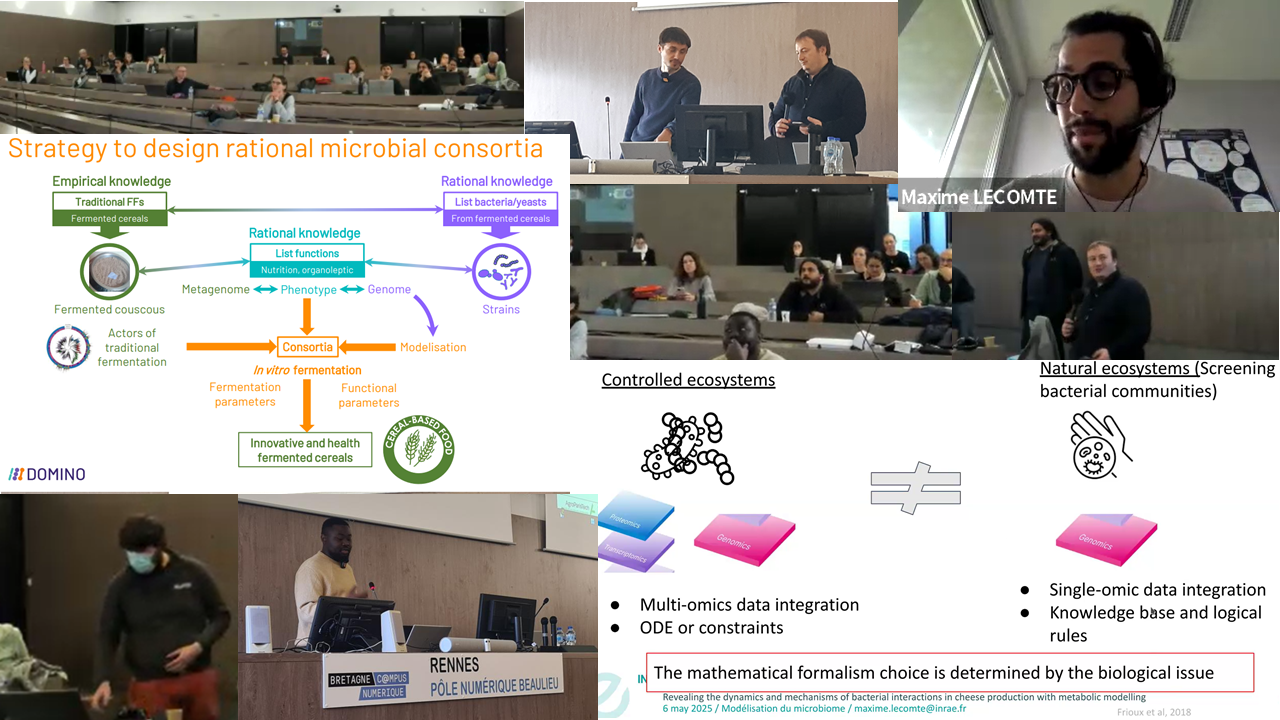
The French NEM (Nutrition & Microbial Ecosystems) network hold its annual meeting this last two days (5th – 6th of May) in Rennes. Julien Tap, researcher from the FME lab presented the first results of his Ferment du Future SynthPlex project and how Engineering food microbial consortia can be performed using microfermentors to reveal strain epistasis. With the Support of Holoflux and Digit-Bio INRAE Metaprogram, He also co-organized with Guillaume Gautreau from the MaIAge Unit a specific workshop on modelling of microbial ecosystems.
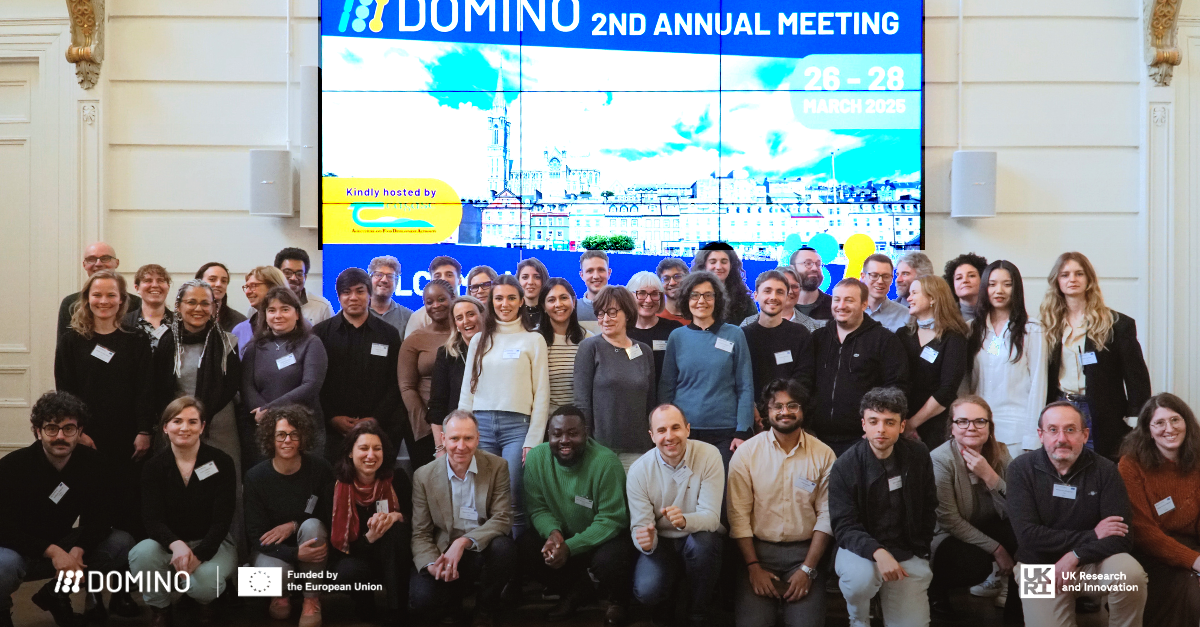
The DOMINO project held its second annual meeting from 26 to 28 March in the picturesque city of Cork, Ireland. It was an intense and warm moment thanks to the efficient and very friendly organisation of Teagasc and its incredible team coordinated by Orla O’Sullivan and John Kenny.
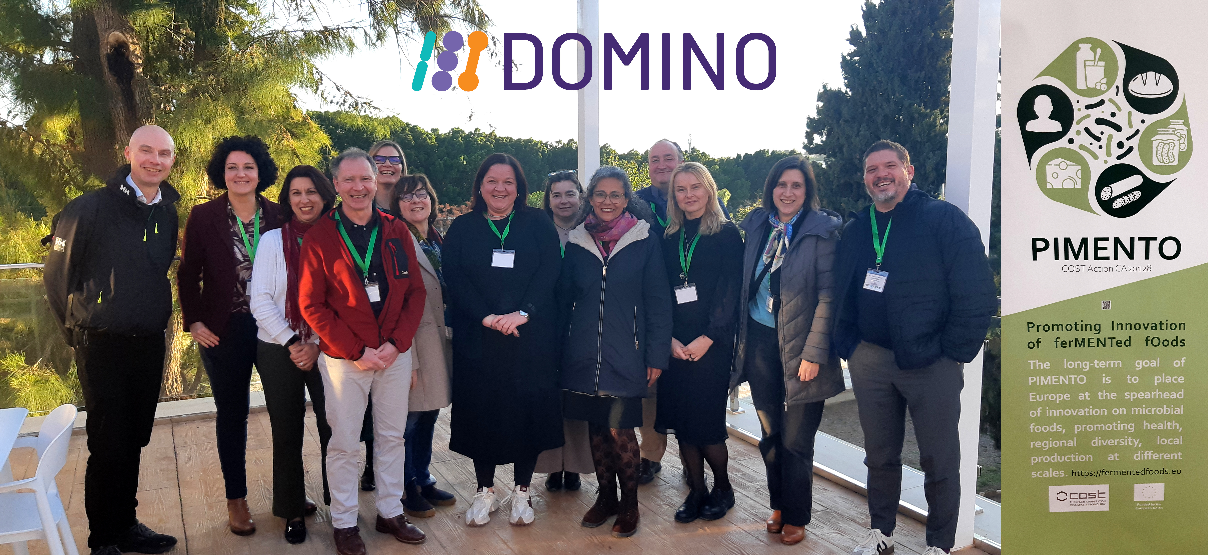
#DominoEU researchers participated significantly to this amazing conference organised by the COST Pimento. Paul Cotter, Orla O’Sullivan, Jekaterina Kansatseva, Bastien Renard, Isabelle Savary-Auzeloux, Luca Cocolin, Kelly Rantsiou and Tanja Kostic gave talks.